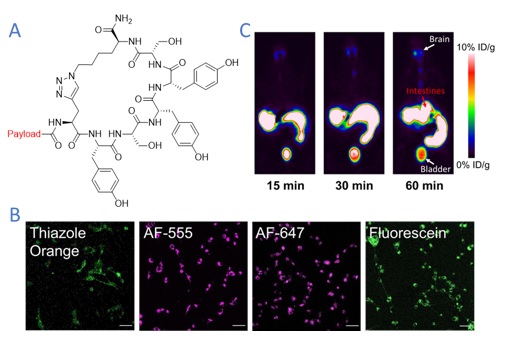Novel Cell Penetrating Peptide for Drug Delivery
Tech ID: 33116 / UC Case 2021-845-0
Background
Targeted delivery of drugs is a challenging task that confounds drug development efforts. Natural barriers such as the cell membrane, intestinal lining, and the blood-brain barrier (BBB) block molecular transportation, making intracellular targeting and oral administration impossible for most drug molecules. There is a pressing need for a molecularly defined delivery tag that can facilitate drug transportation across natural barriers.
Brief Description
Professor Min Xue and his lab at the University of California, Riverside have developed a novel hydrophilic endocytosis-promoting peptide (EPP6) rich in hydroxyl groups with no positive charge that may be used for drug delivery purposes. This peptide is non-toxic and has been shown to transport a wide array of small-molecule cargos into a diverse panel of cells. It enables oral administration and absorption through the intestinal lining, and crosses the BBB in vivo. UCR EPP6 is advantageous over existing technologies since it is nontoxic, efficiently enables oral absorption and transport across the BBB.

Fig 1: A) Structure of the UCR EPP. B) Confocal images showing that EPP6 was able to transport different cargo molecules into the cells. C) Orally administered EPP6 is absorbed by the intestines, entering the blood circulation and reaching the brain.
Suggested uses
- A tool for drug delivery applications including intracellular delivery, oral administration, and delivery across the blood-brain barrier.
Patent Status
| Country | Type | Number | Dated | Case |
| United States Of America | Published Application | 20240083949 | 03/14/2024 | 2021-845 |
Related Materials
Contact
- Grace Yee
- grace.yee@ucr.edu
- tel: View Phone Number.
Other Information
Keywords
Cargo molecule, peptide, EPP6, drug delivery, blood blood-brainer, biomedicine, oral absorption
